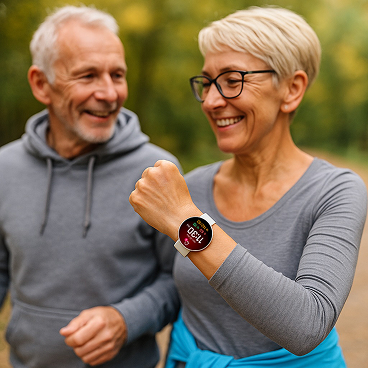
LifePlus, a Silicon Valley-based healthtech startup, has achieved global clinical validation for its AI-powered wearable LifeLeaf®, the world’s first non-invasive, cuffless device for continuous glucose and blood pressure monitoring. Validated through multi-center trials at Mayo Clinic, Cleveland Clinic Abu Dhabi, and other institutions across 14 countries, LifeLeaf is designed to eliminate the need for needles, invasive sensors, or cuffs—offering a new benchmark in early detection and preventive healthcare.
The company analyzed over 70,000 biomarker data points from more than 500 individuals across diverse demographics. Results demonstrated LifeLeaf’s impressive accuracy:
Glucose Monitoring: Achieved 10.8% MARD vs BGM and 8.5% MARD vs Dexcom G6 in a 70–250 mg/dL range.
Blood Pressure: Delivered a mean deviation of –0.02 ± 12.5 mmHg systolic and 0.03 ± 8.4 mmHg diastolic.
Clinical Efficiency: Offers long-term, real-world data without calibration or disposables, at 70% lower annual cost than traditional methods.
Leading physicians noted that LifeLeaf improves patient adherence and has the potential to transform management of hypertension and diabetes, chronic conditions affecting millions worldwide. The company is also developing a new metric to assess arterial stiffness as a better predictor of cardiovascular outcomes.
Backed by strong clinical data and a $100B+ addressable market, LifePlus is launching additional outcome trials across Asia, Europe, the Middle East, and North America.
MedTech Spectrum's Summary